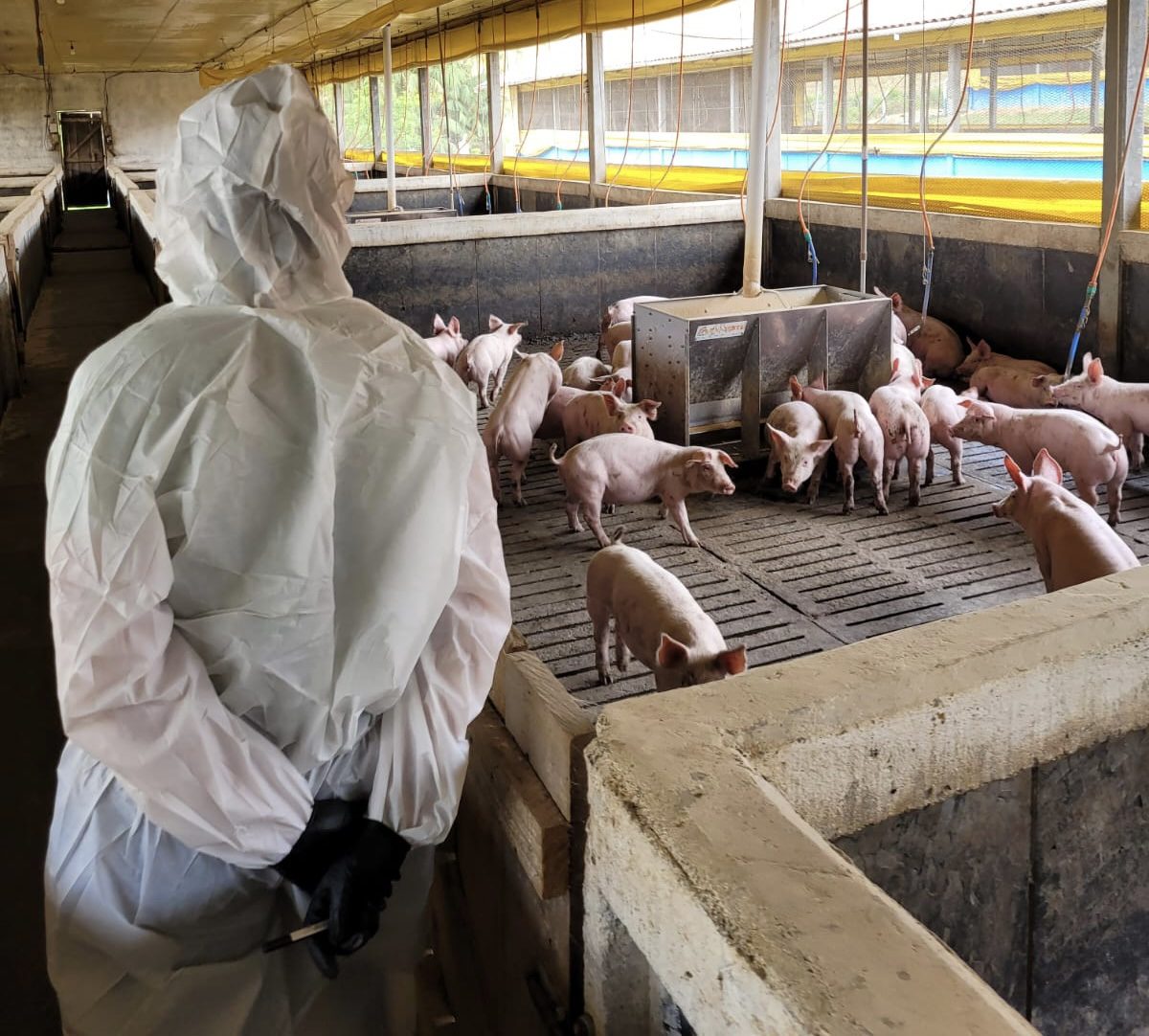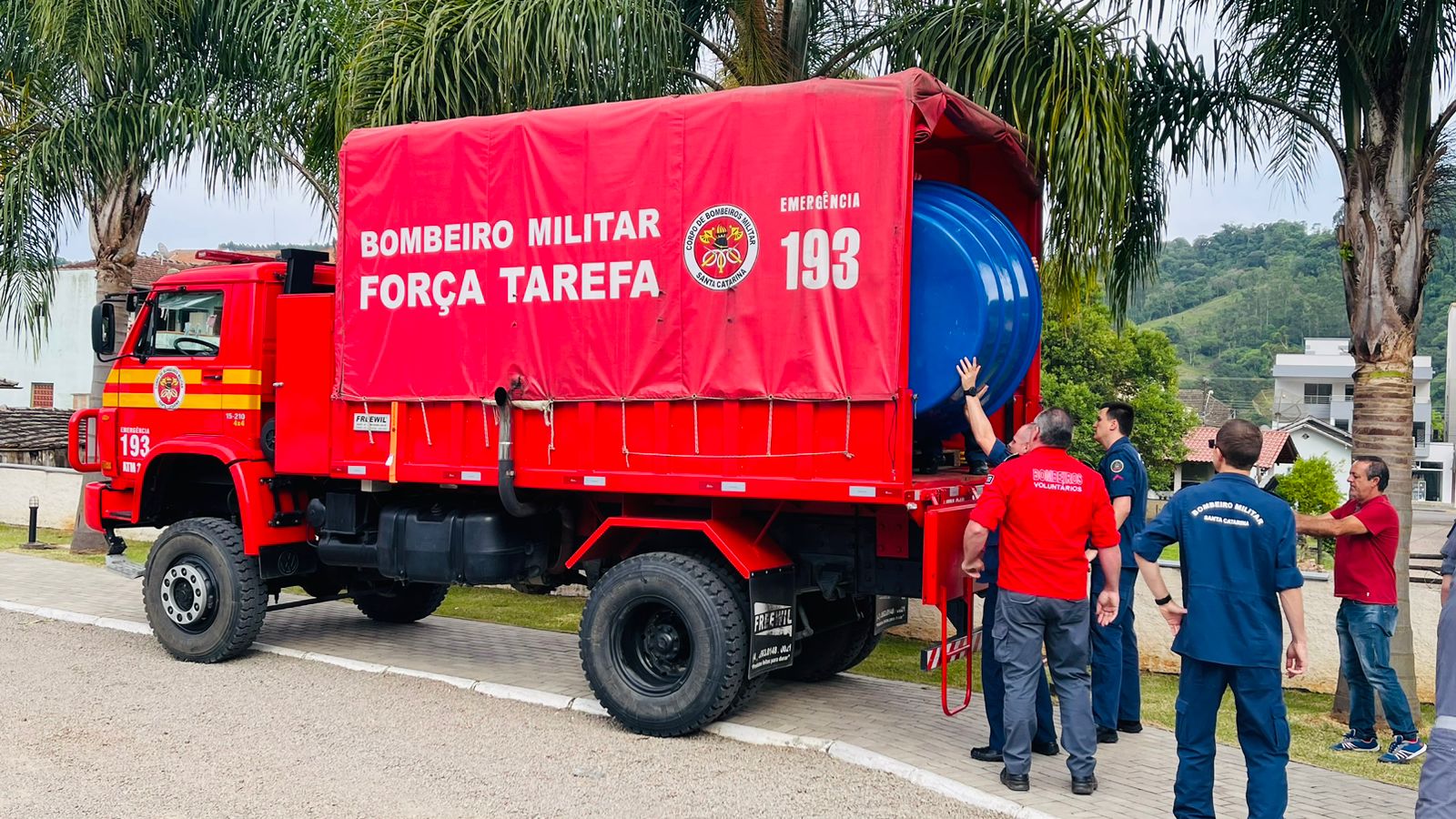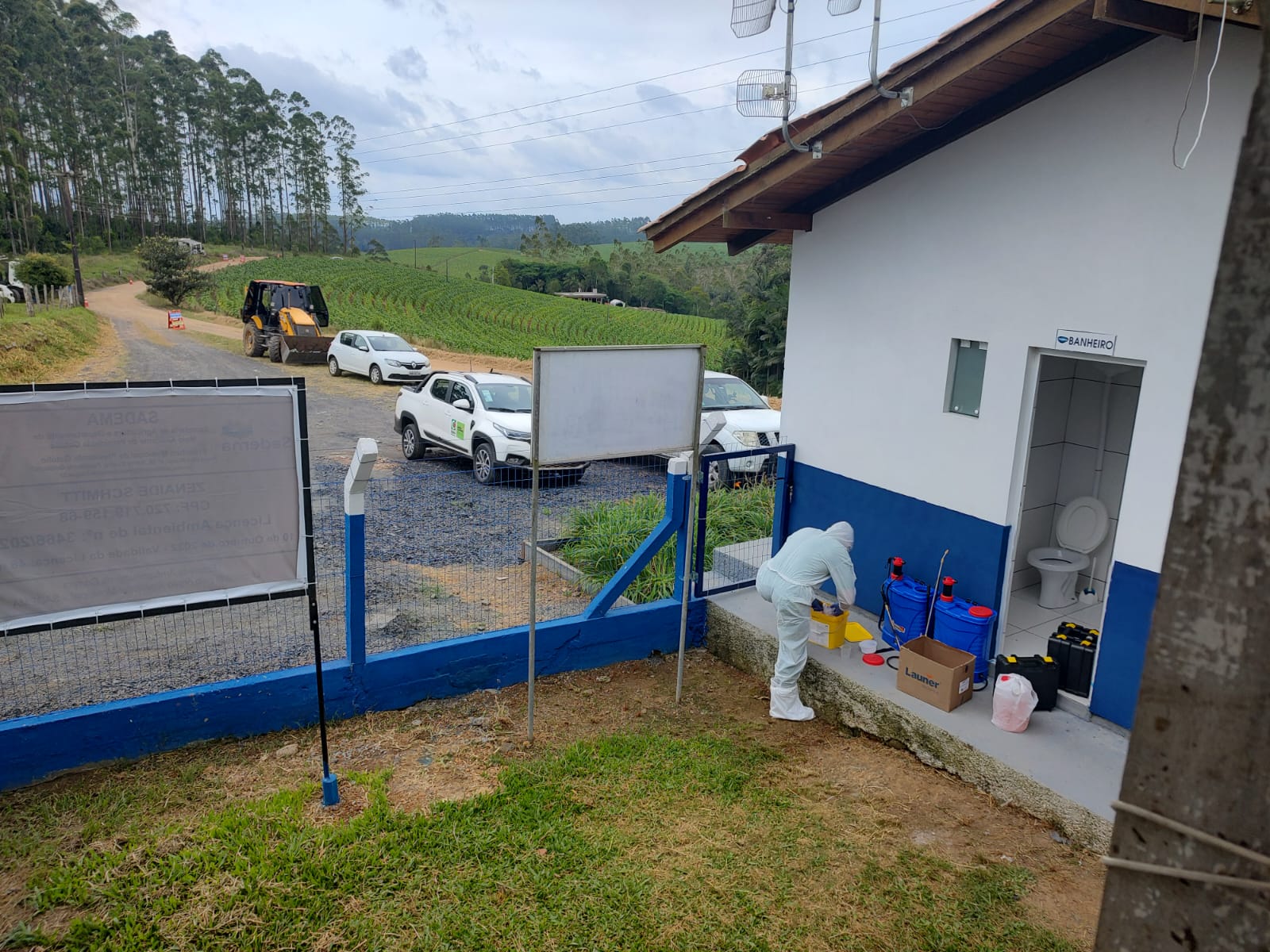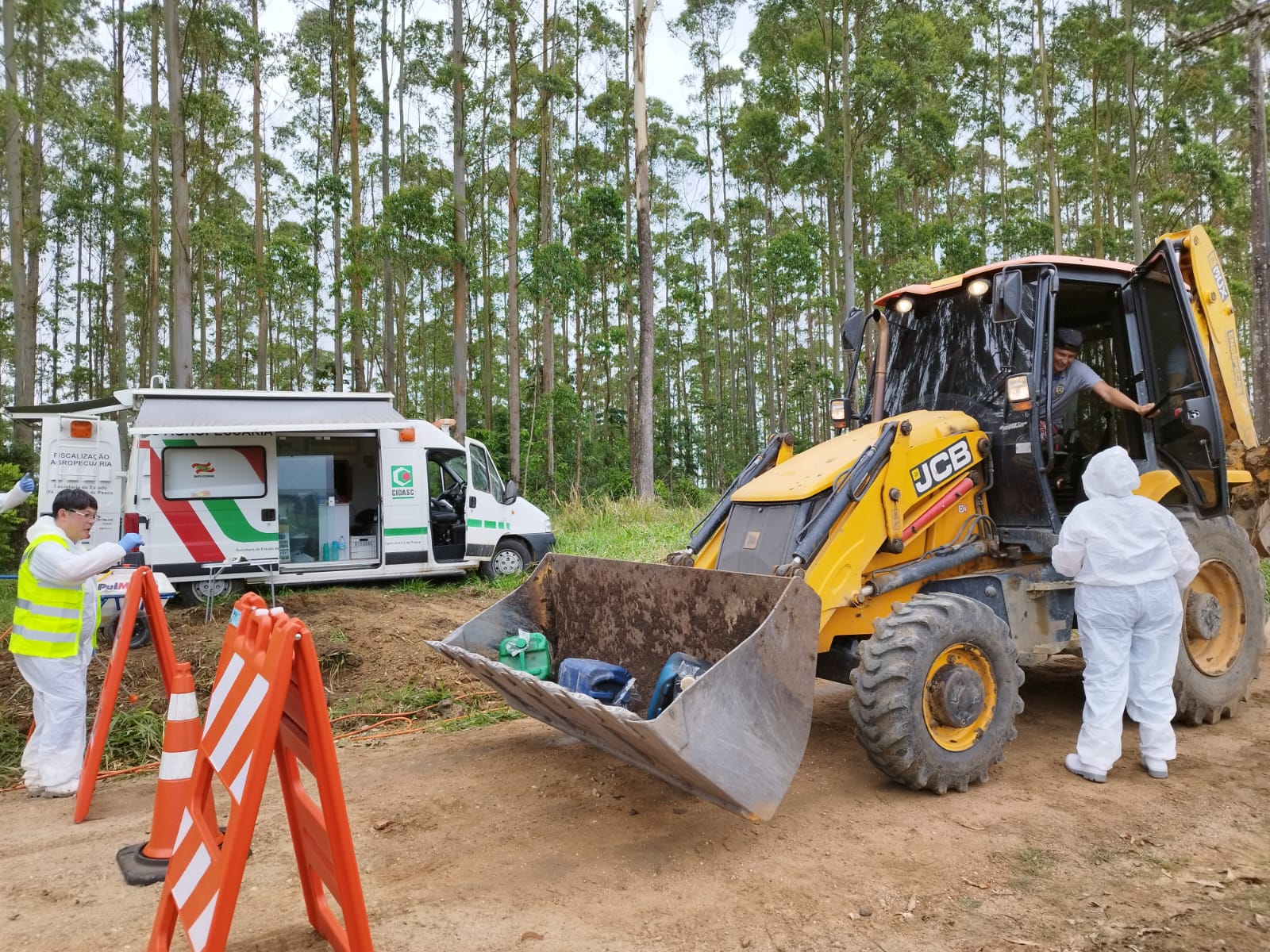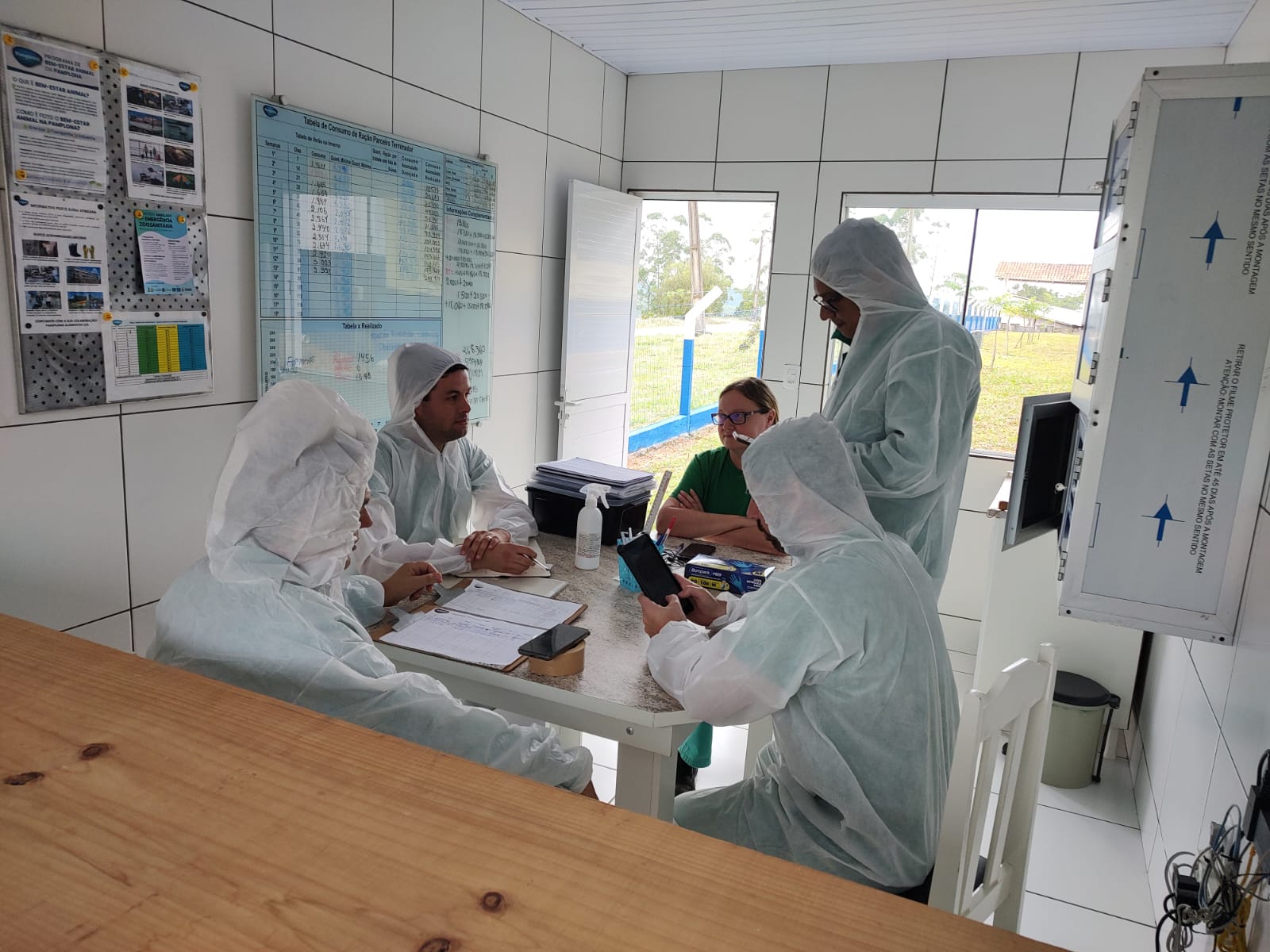Field simulation trainings to support emergency preparedness

Imagine: November 2022, the small Brazilian town of Presidente Getúlio is the backdrop for an unprecedented event. 230 professionals representing a variety of sectors gather to respond to a simulated animal health emergency: an outbreak of African swine fever. Their goal is to test the country’s contingency plan against this deadly pig disease in real conditions, with the participation of the World Organisation for Animal Health (WOAH).
Brazil has been free from African swine fever since 1984, but as cases recently hit the Americas, the national and state-wide veterinary workforces are making sure all relevant stakeholders are well prepared in case of an outbreak. “Local, state and national Veterinary Services were involved in the exercise, as well as the police, firemen, farmers, members of the industry: all those who needed to know how to act during an animal health emergency participated. Our aim was to put into practice Brazil’s new contingency plan, to ensure it works well and make the necessary adjustments”, says Dr Sabrina Tavares, a State Coordinatior for Swine Health from Santa Catarina’s animal health services who organised and coordinated the event. Representatives from neighbouring countries such as Chile also attended the simulation exercise, alongside WOAH experts.
An ASF outbreak simulation exercise in Brazil
All photos are by CIDASC – Companhia Integrada de Desenvolvimento Agrícola de Santa Catarina
Dealing with an emergency: the value of teamwork and strong leadership
The simulation exercise took six months to organise, and unfolded throughout an entire week. An emergency operations centre was set up, with regular briefings on the situation. Teams were deployed on farms and on the roads to conduct health checks on the animals, prevent the spread of the disease, and inform the population. “We had to get everyone to understand how serious the situation could be, not only for animal health but for the whole pig production sector and country’s economy. Local authorities were of great support: we did a lot of work to publicise the simulation”, Dr Tavares says.
The teams worked together to implement the contingency plan and seek solutions to practical issues such as the disposal of infected animals. “As in a real situation, we had a limited amount of material available, and we had to figure out how best to share and distribute it”, Dr Tavares says. “Just as they would in a real crisis, the participants grew tired after a week of dealing with the emergency. Yet, real crises can last much longer. Good leadership was essential to keep everyone motivated and engaged, and to maintain a constructive mindset among the professionals who weren’t used to working together.”
Building on the lessons learnt from the simulation exercise
In the Brazilian state of Santa Catarina, Dr Tavares’s team had already organised simulation exercises for a potential outbreak of avian influenza and foot and mouth disease. But this particular exercise on African swine fever was unprecedented in scope, as it was the first exercise ever made on this disease in the country. “We learned valuable lessons”, she says. “First, that human involvement from all relevant actors is key. Second, that we needed to write a detailed manual on how to set up an operations centre in case of an emergency, and on how to organise the teams.”
Now that the exercise is over, Dr Tavares’s team is developing this manual from the exercise experience, and examples from other Brazilian states, to complement the national contingency plan. They will also draw inspiration from WOAH’s guidelines for simulation exercises. This manual will help share good practices learned from the Presidente Getúlio exercise across professions and borders, to other Brazilian states as well as neighbouring countries.
WOAH supported the event and keeps enhancing its emergency preparedness activities. It highly encourages the notification of simulation exercise activities by its Members to raise visibility, foster solidarity between countries and avoid confusion with a real event.
87% of Members have a contingency plan for at least one disease.
But only 45% of Members reported having conducted a simulation exercise.
408 simulation exercises were reported between 2002 and 2021, mostly in Europe and in the Americas.
Source: Observatory Annual Report 2022
Sharing emergency management experience across borders and sectors
ASF is not the only disease that has triggered animal health emergencies over the past years. Many other countries are also preparing for potential outbreaks of other diseases such as avian influenza or foot and mouth disease through simulation exercises.
But diseases are not the only threats with which Veterinary Services can be faced. They must also prepare for other kinds of emergencies, including agro-terrorism. In this regard, WOAH recently coordinated a cross-border simulation exercise in collaboration with the Food and Agriculture Organization of the United Nations (FAO) and the International Criminal Police Organization (INTERPOL), and with the support of the European Commission for the Control of Foot-and-Mouth Disease (EuFMD). Exercise Phoenix brought together Veterinary Services and law enforcement officers from 12 countries to explore investigation and response to an agro-terrorism event. The exercise also explored the roles of international organisations to such emergencies. The end goal: to be ready to cooperate at national, regional and at international levels and across sectors in case of an actual agro-terrorist event.
When an emergency occurs, the effectiveness of the response depends on the level of preparedness of the veterinary workforce and relevant stakeholders. That is why WOAH aims to build their resilience in the face of all types of emergencies, from disease outbreaks to agro-crime, agro-terrorism and social conflicts, including extreme climatic events. “We cannot always predict an emergency, but we can be prepared for it”, says Keith Hamilton, Head of the Preparedness and Resilience Department.
As part of its broader emergency management programme, WOAH develops international standards and guidelines for tackling health security threats, including contingency plans.

